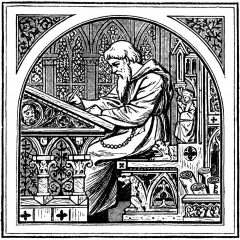
This blog posting is based on a sermon I gave at a local United Reformed Church on February 05th, which had as its theme the way we have allowed ourselves to become practitioners of a false observance of faith, leading to accusations of hypocrisy and the “de-churching” of many congregations. The chosen texts were Isaiah 58: 1-9a, 1 Corinthians 2: 1-12 & Matthew 5: 13-20.
Feb 06th is traditionally known as Accession Day, the day late Queen Elizabeth II succeeded her Father King George VI to the throne. I still find it hard to believe she has actually gone given that for many of us, especially those born after 1952, she has seemed like permanent fixture in our lives.
Yet gone she has after a lifetime of devoted service to her people, rooted in her deep Christian faith and now we have a new King who we hope will continue his late Mother’s legacy in allowing faith to be his guide and comforter. But this is an earthly King, not The King referred to in our worship hymns and praises who is also our strength and our shield. This King was prepared to take human form, to become a servant, to reset the relationship between God and his creation, and yet still we killed him.
We offer prayers and supplications to God and his Son for our own and other intentions but how sincere are we I wonder? Has prayer and worship itself become corporatized, a ritual played out in a now secularized society, hidden from view to which we might retreat for an hour or so because it’s cheaper than the pub or the coffee shop? Do we participate out a sense of duty, or is it to be noticed by the right people so word can get round that so and so is a churchgoer so must be a good and reliable person? All grist to the corporate treadmill or other career progression pathway.
In Isaiah Ch 58, the prophet has been called by God or Yahweh to address the problem of false religious observance. “and declare to my people their disobedience, and to the house of Jacob their sins” (v.1b)
The purpose of getting people’s attention is to announce their rebellion—to make them aware of their sins. They truly don’t understand the scope of their sins. They are in the dark regarding the problem, so they certainly don’t have a clue as to the remedy. While it mentions specific religious disciplines such as fasting and observing the Sabbath, these are not the root of the problem. The root of the problem, is people who observe spiritual disciplines for selfish reasons (to gain God’s blessings) while ignoring the hunger, poverty, homelessness, and nakedness of those in need.
“Yet they seek me daily, and delight to know my ways” (v. 2a). the people have gone from being sinners to those who “seek me daily, and delight to know my ways,”
“as a nation that did righteousness, and didn’t forsake the ordinance of their God” (v. 2b). making it clear that the faithfulness of these people is not real. They have not been faithful. They have failed the righteousness test. They have forsaken obedience to God’s laws. God is challenging us to do the right thing, but human nature expects every good deed we do to be reciprocated by God and we get annoyed when he doesn’t, and we revert to our old wicked ways.
Finally in verse 9a we get to the crux of the problem, “Then you shall call, and Yahweh will answer; you shall cry, and he will say, ‘Here I am.”
In other words, if these people will establish justice and set the oppressed free and feed the hungry, God will answer their prayers for help. If they help others, God will surely help them.
The false practices of faith and the hypocrisy it generates is one of the reason why people lose faith or become de-churched? Among the reasons we can list are; church is boring, its full of old people, not in tune with life’s realities, it has become irrelevant, nothing in it for me or my family, full of weirdos, scandal ridden, full of hypocrites. There are many others we could list but we must also acknowledge that sometimes we leave people perplexed by poor explanations of our liturgy particularly where the Bible can still provide guidance in how we tackle many of today’s problems.
One solution then is to express our love for God in all we do. And if we love God, we will also love those who he puts in front of us. Like the parable of the Good Samaritan from Luke’s Gospel, that love for God and neighbour will be shown by taking necessary steps to care for those in need. Sounds simple doesn’t it?
But of course, life is never that simple. Good deeds have a habit of rebounding back at you sometimes. I recently had a conversation with a local foodbank where one of the users had complained that they were tired of getting cheap value type food preferring to have brand named foods in their parcels. I suppose it begs obvious question, “What would Jesus have done?”
Proclaiming the risen Christ particularly in today’s world takes a lot of courage however small or large the role we play and we sometimes we do struggle to get the message across. Sometimes we get pushed into situations which God has decided he wants us to be in. Paul in his first letter to the Corinthians is a case in point. Paul begins chapter 2 in our reading with the words, “When I came to you, brothers, I didn’t come with excellence of speech or of wisdom, proclaiming to you the testimony of God. For I determined not to know anything among you, except Jesus Christ, and him crucified “. Here, Paul acknowledges he was no great orator but was focused solely on “Jesus Christ, and him crucified” and that was sufficient. He was well educated as his letters show, but as to his proclaiming Christ in his speech, he acknowledges his weakness, fear and trembling in doing so. We are no different. Our levels of education may vary, but we all have it in us to proclaim Christ as Lord and Saviour.
Paul was moved not by human wisdom but by the spirit, and he prayed for the spirit to guide him. God’s wisdom is indeed a mystery to many: it was then, it remains the same today. God’s wisdom is ordained in the Holy Spirit and as it says in verse 12, “But we received, not the spirit of the world but the Spirit which is from God, that we might know the things that were freely given to us by God”. Paul contrasts the spirit of the world with the Spirit from God. God gives his Spirit to those who come to him in faith, and that Spirit enables the person of faith to “understand the gifts bestowed on us by God.” We are in the same position today.
In the Gospel reading from Matthew vv 13-20, its that part of the Sermon on the Mount where having proclaimed the beatitudes and turned accepted wisdom of the time on its head, Jesus then moves onto more practical matters many of which still hold today. He says YOU are the salt of the earth; you are the truly wise ones not those considered to be the “official representatives” of Jewish wisdom and tradition (Scribes and Pharisees) who Jesus feels have lost their way. By doing so he calls us both individually and collectively to be the salt of the earth indicating that, by God’s grace, the miracle of our own transformation has already begun.
We are also the light of the world; a metaphor used several times in the New Testament. Why Jesus asks, do we hide our light under a bushel rather than use the light to illuminate everything around us? Jesus is telling us not to hide the light bestowed upon us, but to show to everyone who sees it that through our good works and service we give glory to our Father in Heaven, whether here in our own communities or further afield.
In v17, Jesus declares he has not come to abolish the law or the prophets but to fulfil it. Obeying the commandments is a fundamental part of faith in God. The law and the prophets together symbolized the whole will of God. They were intended to guide the people faithfully so that they could live within the will of God and enjoy God’s blessings. Jesus taught us that it is through obeying these and getting others to follow we will be called great in the Kingdom of Heaven.
(v. 20). “For I tell you that unless your righteousness exceeds that of the scribes and Pharisees, there is no way you will enter into the Kingdom of Heaven”. The scribes prided themselves on their ability to interpret the law correctly, and the Pharisees prided themselves on keeping the law in all of its detail. They represented the religious establishment in Israel. Jesus challenged their authority and called them hypocrites on a number of occasions, for while they may have looked presentable on the outside, “within they are full of hypocrisy and iniquity”. What Jesus challenged was their strict interpretation of the law, which not only created hardship for many but prevented the taking of any action to alleviate that hardship. Which is why he healed on the sabbath and did not adhere to the food laws and was critical of so many other unjust laws and customs during his earthly life.
There are many obvious parallels with our world today. Any cursory glance at the news bulletins will confirm that. We no longer look up to or revere those in authority whether it be political or religious and there are plenty of examples to illustrate why. The gap between the leaders and the led is continually getting wider both socially and economically and people are crying out for an alternative way.
That way is the way of Christ: but it needs more of us being the salt and light, by being that city on a hill which cannot hide itself but is visible for all to see and represents faith in God, hope in Jesus Christ and the love he showed for us. Jesus gave us just two commandments, love of God and love of neighbour. We will of course never do that perfectly in this life, but making Jesus and his teachings the daily fulcrum of our lives ought to be our goal.
This from St Anselm of Canterbury, may help those of us who still find themselves trying to make sense of this confusing faith we call Christianity.
I do not seek to understand in order that I may believe, but rather, I believe so that I may understand.
